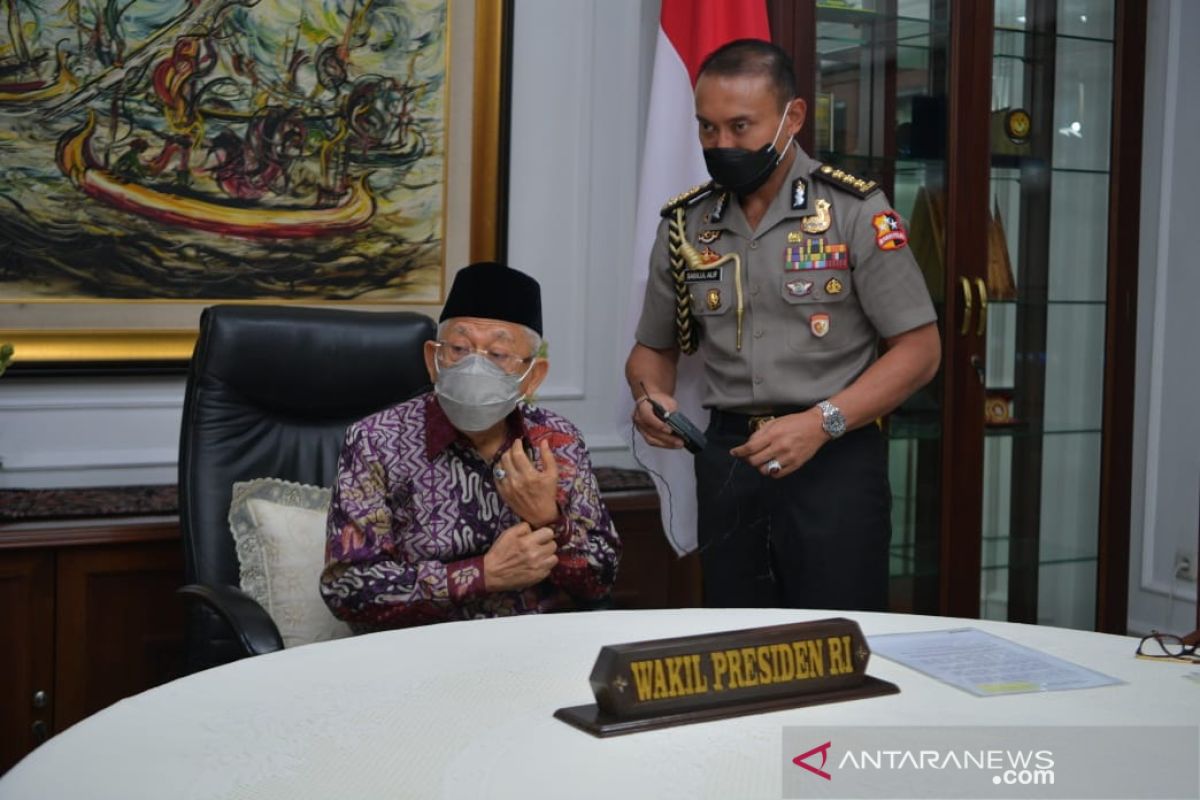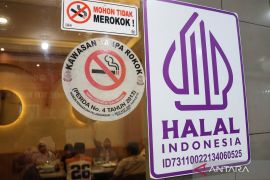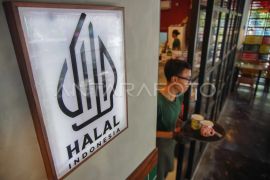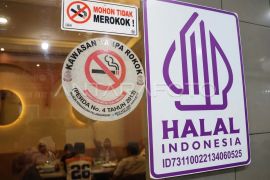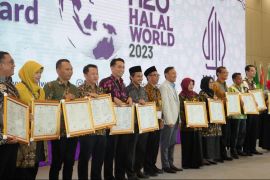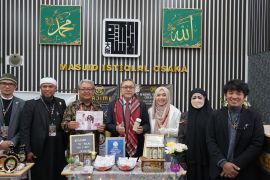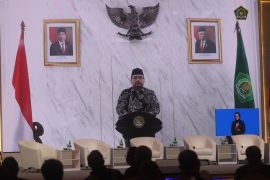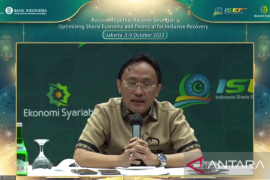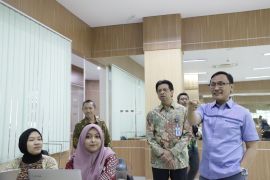Although the economy is growing negatively, I still see an opportunity that the demand for global halal products can be utilized, taking into account the fact that our exports of halal products are still smallJakarta (ANTARA) - Vice President Ma'ruf Amin gauged that despite the country experiencing negative growth, the opportunity still existed to intensify the production of halal products, especially taking into account demand at the global level.
"Although the economy is growing negatively, I still see an opportunity that the demand for global halal products can be utilized, taking into account the fact that our exports of halal products are still small," Amin stated during the Indonesia Islamic Festival (IIFEST) 2020 webinar series on Thursday.
The vice president remarked that the sharia economy was also affected by the COVID-19 pandemic, as were conventional economic activities. However, globally, the slowdown in the Islamic economy was no more severe than the growth of the world economy as a whole, he pointed out.
"The world’s economy during the COVID-19 pandemic in 2020 is estimated to experience a contraction of 5.2 percent; while the global Islamic economy has only contracted 2.5 percent," he noted.
The halal food and beverage industry globally had only contracted by 0.2 percent; followed by the cosmetics sector, by 2.5 percent; and Muslim clothing, by 2.9 percent, Amin stated while referring to The State of the Global Islamic Economy Report.
"The global Islamic economy, prior to the pandemic, was estimated to reach US$3.2 trillion in 2024. Post-pandemic, it is estimated to reach US$2.4 trillion in 2024, and it is huge enough for us to capitalize on," he stated.
The vice president noted that in Indonesia, the Islamic economy had the potential, as one of the pillars, to restore the national economy.
Hence, efforts to revive the sharia economy and finance in Indonesia after the pandemic ends are deemed crucial to encourage the revival of the national economy.
"We must take this opportunity to facilitate national economic recovery," the vice president stated.
Indonesian Trade Minister Agus Suparmanto had earlier stated that the 57 member states of the Organization of Islamic Cooperation (OIC), with a population totaling 1.86 billion, are an “extraordinary” market for halal products.
Muslims constitute majority of the population in OIC member states, and therefore, have a high level of compliance with halal products, he stated during an online seminar here on Saturday.
Suparmanto pointed to Indonesia’s sound trade performance with other OIC member states. During the January-July 2020 period, Indonesia's exports to OIC member countries had reached US$10.94 billion and recorded a surplus of US$2.2 billion, he noted.
Farm products comprised the largest share of Indonesia's exports to OIC members, accounting for US$2.6 billion, or nearly 25 percent of the country's total exports to the OIC market.
“The good performance of Indonesia's exports to Muslim countries during the January-July 2020 period is inseparable from the role of the country’s halal products, particularly foods, cosmetics, and medicines. In total, the three products have contributed US$515.79 million (to the total exports to OIC),” Suparmanto remarked.
Related news: Indonesia aims to turn into global halal hub by 2024
Related news: Hope more Indonesian halal products enter global market: VP Amine
EDITED BY INE
Translator: Fransiska N, Azis Kurmala
Editor: Fardah Assegaf
Copyright © ANTARA 2020
